As your favorite feline ages, you’ll start to notice specific changes in their behavior, personality, and health. For many cats, advanced age leads to a condition called cognitive dysfunction syndrome—also known as dementia. Recent studies show that 28 percent of cats aged 11 to 14 experience at least one symptom of feline dementia, and that number jumps to an astonishing 50 percent for cats 15 and older. Dementia in cats is unfortunately common, but it’s often misdiagnosed and misunderstood.
It’s important to realize that feline dementia is more than “old age.” It’s a cognitive disease that can become completely debilitating if it’s not recognized and treated accordingly. There is no cure, but there are ways to offer your aging cat relief and comfort. Here’s what you need to know to help your senior cat with dementia.
What is Dementia in Cats?
Dementia is a cognitive condition that appears in almost all animals—including humans and cats. It’s directly related to how the brain ages. The cause is unknown, but it has been linked to several other age-related diseases that can either worsen or accelerate dementia symptoms. Cats with hyperthyroidism, hypertension, and brain tumors seem to have a greater likelihood of also developing dementia. But there are also cats that are completely healthy and develop dementia for no apparent reason.
Because it’s associated with an aging brain, dementia in cats presents similar symptoms to dementia in humans. It can affect a cat’s memory, responsiveness, awareness, and ability to learn.
Signs Your Cat Has Dementia
Dementia in cats is often misdiagnosed or completely ignored. Our feline friends are experts in hiding their pain, and not every symptom will seem obvious—even to the most dedicated pet parents. Veterinarians typically use an acronym (DISHA) to identify potential dementia symptoms.
Disorientation
Dementia can cause cats to suddenly become confused for no apparent reason. They might get lost in a familiar environment or become trapped in areas like under the bed or in the corner of a room. When this happens, they often panic and cry out. For some cats, disorientation is not being able to find their food bowl, staring blankly into space for extended amounts of time, or choosing to stay in one small area for fear of getting lost.
Interaction Changes
How your cat interacts with you, other family members, and other animals can change with dementia. If your cat is usually a big cuddle bug, dementia could cause them to be more distant. Other cats are the opposite and become more clingy. It’s also possible that your cat’s social interactions will become more unpredictable. Cats are typically moody creatures, but cats with dementia might solicit pets from you one minute and fiercely demand their personal space the next.
Sleep-Wake Cycle
Cats are usually most active in the early morning hours. It’s normal for a cat to start doing sprints through the house at 4 AM. But if you notice your cat sleeping when they’re usually awake or awake when they’re usually asleep, it could be a sign of dementia.
House Soiling
There are several age-related health issues that can cause a cat to stop using a litter box. Some cats with dementia simply get lost in the house and can’t find their litter box—even if it’s been in the same location for years. Other cats get confused and forget that peeing on the carpet is a no-no.
Activity Changes
Dementia in cats can lead to unexpected changes in activity. They’re no longer interested in things they used to enjoy, like following you around the house or watching animals outside the window. Your cat might also show signs of increased anxiety, like yowling, lashing out, excessive grooming, negligent grooming, or avoidance.
Diagnosis and Treatment
If your senior cat is showing any of these symptoms, it’s important to talk to your vet. Many of the common signs of dementia in cats are also related to other health issues. Your vet will need to rule out these conditions before making an official dementia diagnosis. Confirming your suspicions with a professional is the first step to helping your cat cope with cognitive difficulties.
There is no cure for dementia in cats. It’s also a progressive disease that tends to get worse with time. That doesn’t mean, however, that your cat needs to lose all their quality of life. There are simple steps you can take to help your cat feel more comfortable and slow the progression of the disease.
Enhance Their Diet
There are specific foods that have been proven to benefit brain health. Feeding your senior cat a diet rich in antioxidants, Vitamin C, Vitamin E, omega-3, and beta carotene can bolster their brain function and help fight dementia.
Provide Enrichment Activities
Your cat’s brain is like any other muscle in their body; it will be stronger if it gets exercise. Enrichment activities including training, new toys, and play time will help your cat’s brain stay healthy.
Avoid Change
While you’re planning out enrichment activities, keep in mind that cats with dementia have difficulty handling change. Make sure you don’t introduce anything that will cause your cat to become confused or disorientated. For example, avoid rearranging the furniture or bringing a new pet into the house.
Provide More Light
Many cats with dementia get especially disoriented and confused in the dark. Strategically placed night lights will help them navigate the house.
Maintain Scents
When your cat has dementia, they’ll need all of their senses to help them stay comfortable. Their sense of smell becomes especially important. Scents can guide them through the house and familiar scents help ease their anxiety. Try not to wash blankets and pillows too often. Fabric toys and scratchers are also good to keep around because they trap familiar scents.
Medications
If your cat is experiencing extreme anxiety due to dementia, a vet might recommend medication to help ease their stress.
Dementia in cats can range from occasional confusion to a more all-encompassing type of disorientation. The key to keeping your cat comfortable is to have patience and understanding. They might not behave like they used to, but they’re still your precious fur baby. Your cat needs your help and compassion now more than ever. Many senior cats with dementia learn to adapt to their new “normal” and live out their golden years happy and healthy.
REMEMBER: ADOPT, DON’T SHOP; FOSTERING SAVES LIVES & SPAY AND NEUTER!
Related Story: Sweet Senior Cat Loves To Take Her Toys For Tiny Excursions
Related Story: Senior Cat Finds The Purrfect Retirement Home After Owner Moves Into Assisted Living–In Florida Of Course!


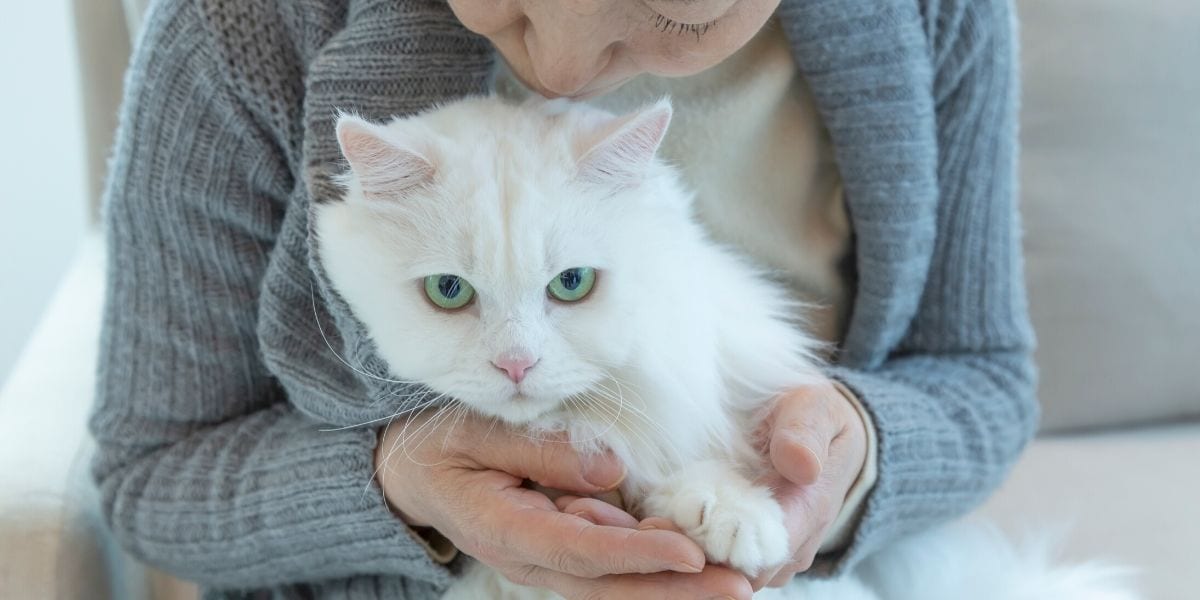

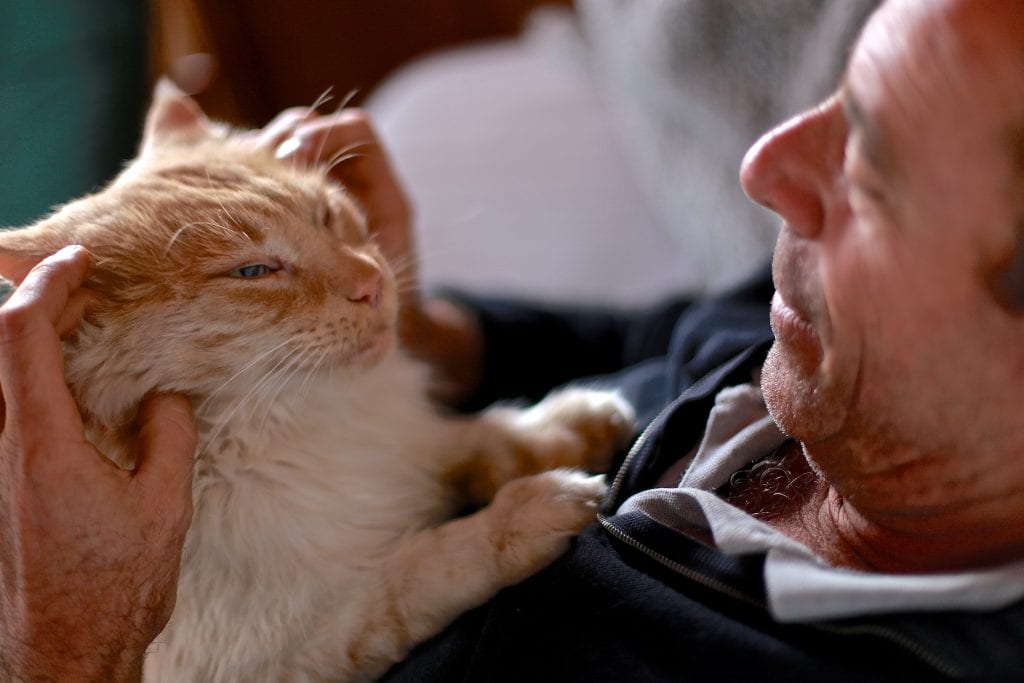

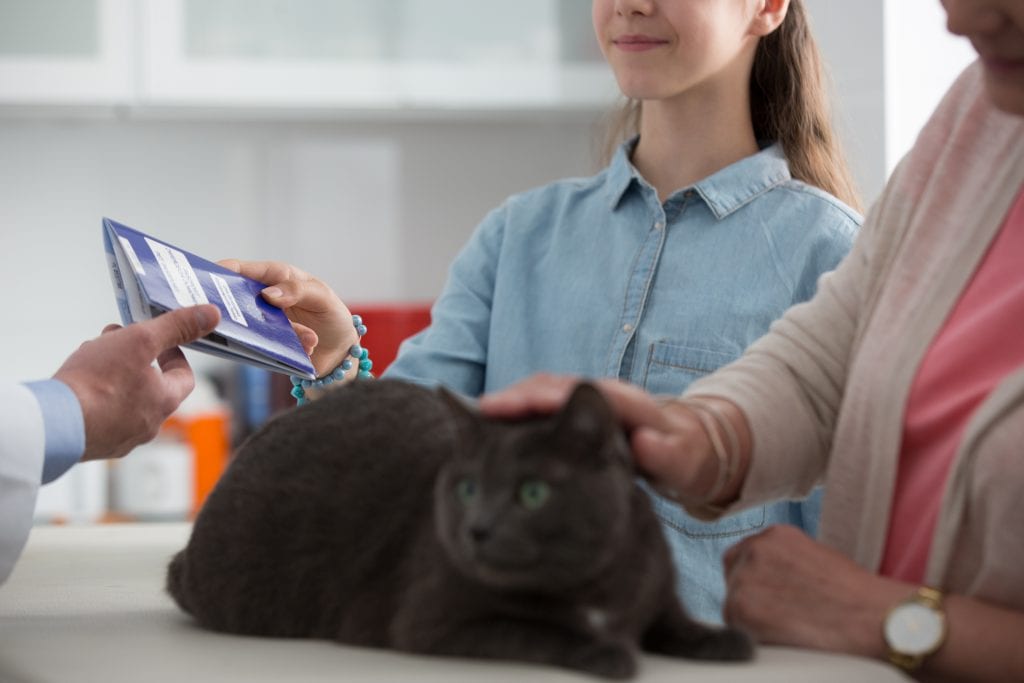
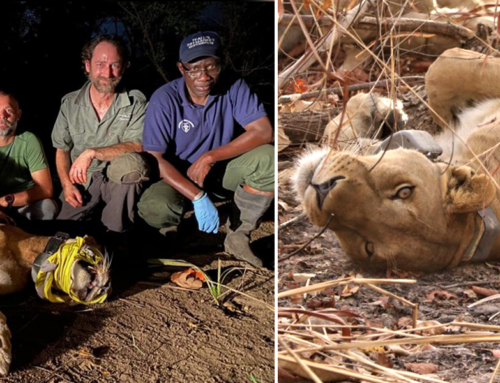

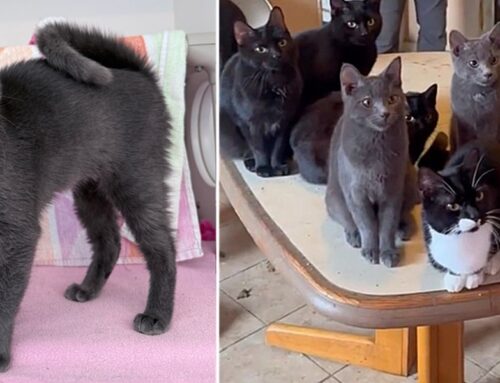
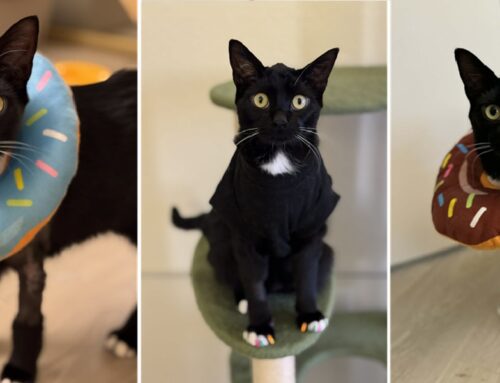
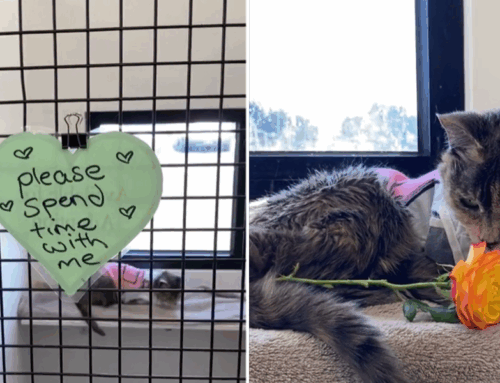
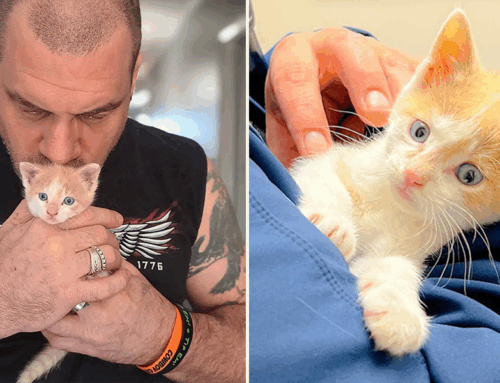

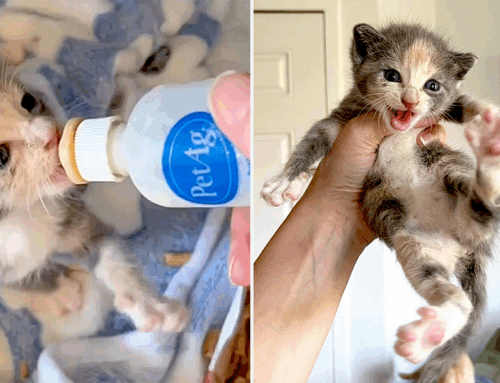
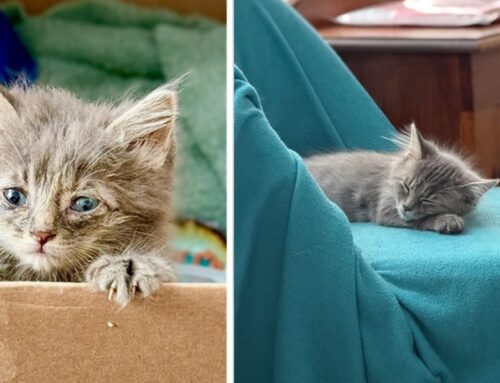
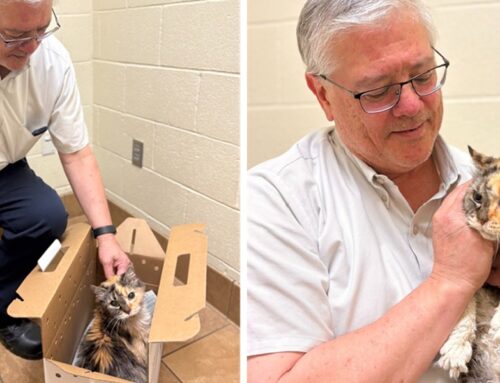
I have one female cat 16 yrs old now. She needs more caring than before. By the way, it is good information on how to take care of her.
great info, but one pedantic anatomical point: the brain contains a slight bit of muscle, but it is not actually a muscle.
The brain is 100% NOT A MUSCLE.